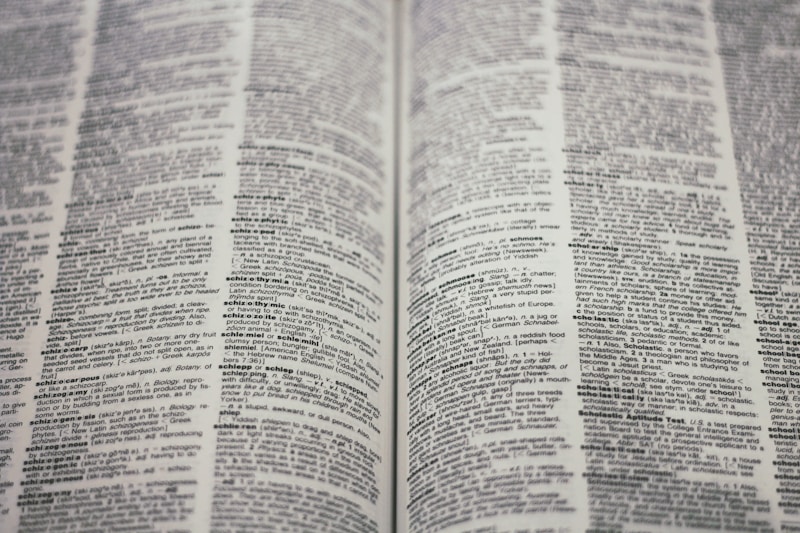9 Questions
What is the second-largest word class in English?
Which of the following is NOT one of the eight word classes in English?
Which pronoun is used for closed set alternatives?
Which verb tense is used to form the passive voice in English?
Which adjectives are ungradable in English?
Which word can be used as a pronoun, playing the role of a dummy subject?
Which conjunction expresses a logical relation between items, phrases, clauses, and sentences, and can be coordinating or subordinating?
Which personal pronouns have three morphological cases in English?
Which is the first published English grammar?
Summary
Overview of English Grammar
- English grammar is a set of structural rules for the English language, including the structure of words, phrases, clauses, sentences, and whole texts.
- Present-day Standard English is a form of speech and writing used in public discourse, including broadcasting, education, entertainment, government, and news.
- Modern English has largely abandoned the inflectional case system of Indo-European in favor of analytic constructions.
- Eight word classes or parts of speech are commonly distinguished in English: nouns, determiners, pronouns, verbs, adjectives, adverbs, prepositions, and conjunctions.
- Nouns form the largest word class and verbs the second-largest.
- Unlike nouns in almost all other Indo-European languages, English nouns do not have grammatical gender.
- Noun phrases are phrases that function grammatically as nouns within sentences, for example as the subject or object of a verb.
- Pronouns are a relatively small, closed class of words that function in the place of nouns or noun phrases.
- The personal pronouns of modern standard English are I, you, she, he, it, we, and they.
- The third-person form they is used with both plural and singular referents.
- The possessive determiners such as my are used as determiners together with nouns, as in my old man, some of his friends.
- The demonstrative pronouns of English are this (plural these), and that (plural those), as in these are good, I like that.English Grammar: Pronouns, Verbs, and Adjectives
Pronouns:
- Interrogative pronouns are who, what, and which (with -ever suffix for emphasis).
- Who refers to a person/people, what refers to things/abstracts, and which is used for closed set alternatives.
- Who and what often take a singular verb regardless of number.
- Relative pronouns in English are who (with whom and whose), which, and that.
- Which refers to things, who to persons, and that is normally found only in restrictive relative clauses.
- What can form a free relative clause, and whose can refer to non-persons.
- The word "there" can be used as a pronoun, playing the role of a dummy subject, normally of an intransitive verb.
- The English reciprocal pronouns are each other and one another, best thought of as single words.
- Other pronouns in English are often identical in form to determiners, such as many, a little, etc.
- One is an indefinite (or impersonal) pronoun, which is a more formal alternative to generic you.
Verbs:
- The basic form of an English verb is not generally marked by any ending.
- Most verbs have three or four inflected forms in addition to the base form: a third-person singular present tense form in -(e)s, a present participle and gerund form in -ing, a past tense, and a past participle.
- Regular verbs have identical past tense and past participle forms in -ed, but there are 100 or so irregular English verbs with different forms.
- The verbs have, do and say also have irregular third-person present tense forms.
- The English modal verbs consist of the core modals can, could, may, might, must, shall, should, will, would, as well as ought (to), had better, and in some uses dare and need.
- The copula be, along with the modal verbs and the other auxiliaries, form a distinct class, sometimes called "special verbs" or simply "auxiliaries".
- The passive voice is formed using the verb be (in the appropriate tense or form) with the past participle of the verb in question.
Adjectives:
-
English adjectives cannot in general be identified as such by their form.
-
Adjectives may be used attributively, as part of a noun phrase, or predicatively, as in the house is big.
-
Many adjectives have comparative and superlative forms in -er and -est, such as faster and fastest.English Grammar: Parts of Speech
-
Adjectives modify nouns and pronouns.
-
Adjectives have comparative and superlative forms, which are either inflected (e.g. big, bigger, biggest) or formed with more and most (e.g. beautiful, more beautiful, most beautiful).
-
Some adjectives are ungradable, meaning they cannot be compared on a scale, such as pregnant, dead, and unique.
-
Adjective phrases are groups of words that act as adjectives and usually have a single adjective as its head, to which modifiers and complements may be added.
-
Adjectives can be modified by preceding adverbs or adverb phrases, as well as by noun or quantitative phrases.
-
Adverbs modify verbs, adjectives, other adverbs, and sometimes noun phrases, pronouns, and determiners.
-
Adverbs can indicate manner, place, time, frequency, and degree.
-
Adverbs can be formed from adjectives by adding -ly, but some can be used as both adjectives and adverbs, such as fast and hard.
-
Adverb phrases are phrases that act as adverbs within a sentence and may have an adverb as its head, together with modifiers and complements.
-
Prepositions form a closed word class that usually have a noun phrase as a complement, and a preposition and its complement is called a prepositional phrase.
-
Conjunctions express logical relations between items, phrases, clauses, and sentences, and can be coordinating or subordinating.
-
Personal pronouns have three morphological cases: nominative, objective, and genitive, and some have distinct reflexive or intensive forms.English Grammar: A Brief Overview
-
English word order has moved from the Germanic verb-second (V2) word order to being almost exclusively subject–verb–object (SVO).
-
The syntax of a dependent clause is generally the same as that of an independent clause, except that the dependent clause usually begins with a subordinating conjunction or relative pronoun.
-
Inversion can also be used to form conditional clauses, beginning with should, were (subjunctive), or had.
-
In an imperative sentence (one giving an order), there is usually no subject in the independent clause.
-
Various examples of elliptical constructions are given in the article on Ellipsis.
-
The first published English grammar was a Pamphlet for Grammar of 1586, written by William Bullokar with the stated goal of demonstrating that English was just as rule-based as Latin.
-
Even as late as the early 19th century, Lindley Murray, the author of one of the most widely used grammars of the day, was having to cite "grammatical authorities" to bolster the claim that grammatical cases in English are different from those in Ancient Greek or Latin.
-
Some English grammar rules were adopted from Latin, for example John Dryden is thought to have created the rule no sentences can end in a preposition because Latin cannot end sentences in prepositions.
-
The rule of no split infinitives was adopted from Latin because Latin has no split infinitives.
Description
Test your knowledge of English grammar with our comprehensive quiz! From the eight parts of speech to verb tenses and sentence structure, this quiz covers it all. Whether you're a grammar guru looking to put your skills to the test or a beginner trying to improve your understanding of the English language, this quiz is perfect for you. So, grab a pen and paper and get ready to ace this grammar quiz!




